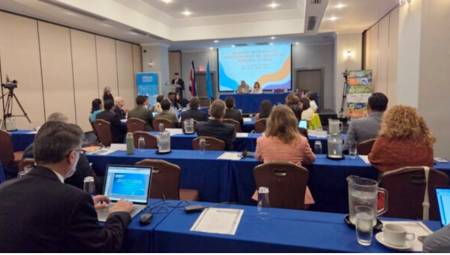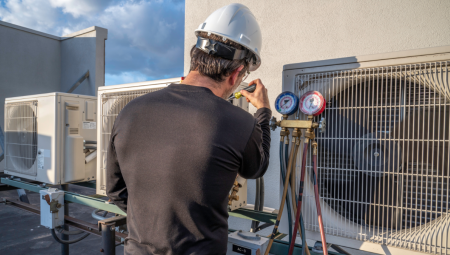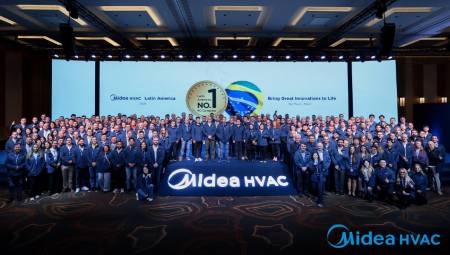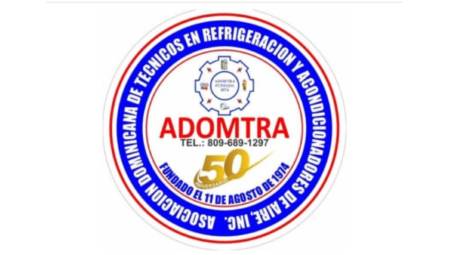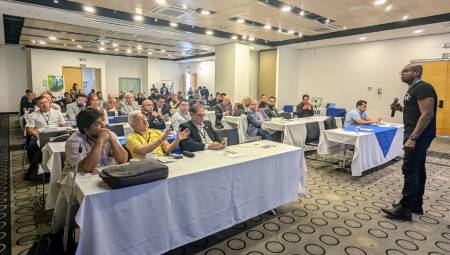by: Application Engineering of the Full Gauge Controls
Modern vs. analog technology
Digital controllers are derived from the branch of control theory that uses microcontrollers and microcomputers as data processing units. The theory of digital controls deals with the issues of the behavior of dynamic systems through discrete samples in time, that is, the control system will show (digitize) the output of the system when it is controlled (plant), in a constant period of time. Each discrete sample will represent the state of the plant's output at the time it was acquired.
Through several consecutive samples, it is likely that the controller can monitor the behavior of the dynamic system and, in this way, act in its operation. According to Nyquist's Theorem, the frequency with which consecutive samples are acquired must be, not minimal, twice the maximum frequency of the plant output.
Unlike analog controllers, which use continuous samples over time, digital controllers work with numbers that represent the analog level of each sample acquired. The function of transforming the analog level of each discrete sample into a digital number is left to the A/D Converter (Analog/Digital). This converter is generally present inside the microcontroller and has, as the most common resolution, 10 bits.
The controller uses a reference as the standard value in which the output of the plant must be maintained, in a stable manner. This reference (setpoint) must be provided by the user, usually through the control panel of the controller. With the setpoint, the controller will be able to perform the system error calculation, that is, how far the current output of the plant is from the reference. From the calculated error, the controller will know how much energy to apply in the plant, so that it keeps the output of the same with the value of the setpoint.
When the input of a controller is connected to the output of a plant, and this controller is acting in some way, we can say that the control system has a closed mesh. In this type of control, the controller is constantly observing the plant, so that it can act immediately, in the case of variation in its output. A practical example is the temperature control of a refrigerator, the plant (the refrigerator) has an outlet in the temperature that you want to stabilize, around a reference (setpoint). The controller will digitize the temperature of the refrigerator, perform the necessary calculations for the control and, then, activate the compressor of the refrigerator, so that the reference temperature is reached.
When a person opens the refrigerator door, it can disturb the plant system, causing the internal temperature to rise rapidly. As the control thermostat is always monitoring the situation of the exit of the plant (control in closed mesh), the latter will be able to feel it.
So when a disturbance occurs, it will drive the compressor in a way that nullifies this disturbance. Thus we can say that the controller connected in closed loop has the ability to detect oscillations and disturbances in the plant, and thus will act to cancel it.
In order for a plant to be controlled, the digital controller will have to act above it, in some way. Depending on each application, an actuator compatible with the plant system must be used, for example, if you want to control the speed of a motor, the digital controller will have to be connected to a frequency inverter. This frequency inverter is the actuator that will modulate the speed of the motor, as the output of the controller does.
Other actuators can also be used, such as: dimmers, proportional valves, relays, etc.
The main advantages of digital controllers over analog controllers are:
•Low cost: cost of microcontrollers and semi-conductors that have been greatly reduced in the last 20 years.
•Flexibility: ease of configuration and reconfiguration through software. Static operation: Digital controllers are less prone to variations due to environmental conditions.
More complex control logic, as they are easier to implement.
Serial communication option
Digital process control is an optimal choice for systems that require low installation cost, noise immunity and increased accuracy.



